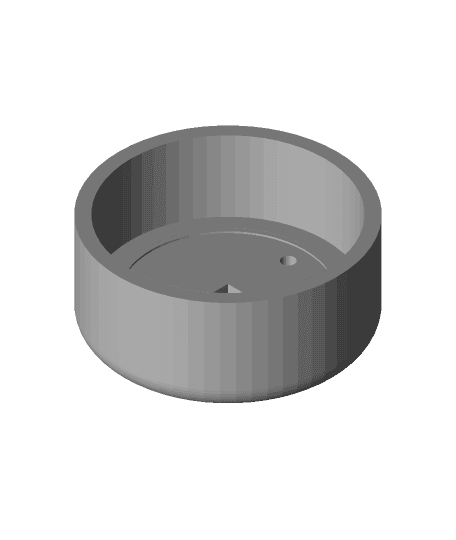Model originally uploaded to Thingiverse at https://www.thingiverse.com/thing:2587666.
Picture the scene... you arrive at work and, while your PC is booting up, decide to make yourself a nice cup of tea. So you wander to the kitchen, and open the fridge, only to discover that someone has used all your milk again - oh no! With a look of despondency, you return to your office, and resolve to find a solution to this problem...
This is a locking milk bottle cap, which requires a removable "key" to be able to open. The idea is that the cap rotates freely without the key, making it difficult to open the bottle. When the key is inserted, the cap locks and can be removed or refitted easily.
Now your milk is a little bit safer in the communal fridge at work...
For food safety, this is designed to accept a standard milk bottle cap which needs to be glued into the 3D printed cap after assembly.
Other parts required:
- 1x countersunk screw M3x10 (to secure the central hub)
- 2x metal shafts 3x18mm (these form the pins in the "key")
Drill through part 3 with a 3mm drill, and drill through the two outer holes in part 1 with a 3mm drill.
Test fit the milk bottle cap in part 2 (while it is still easy to remove by pushing a pen through the central hole). This is designed to fit caps with 40mm outside diameter, and 11.5mm height. These seem to be fairly standard in the UK at least.
Assemble parts 1,2,3 together, filing as needed so that part 2 rotates very freely in part 1. Assuming it does, secure part 3 with M3x10 screw (do not overtighten). If everything still rotates freely, fix part 3 permanently with a small amount of glue and the M3x10 screw. Spread glue around the inside of part 2, keeping well away from the central hub. Insert the milk bottle cap firmly and leave the glue to set.
Take the two 3mm by 18mm shafts, and gently tap them into the key (knurled handwheel), which should leave 10mm projecting out of the handle.
To loosen or tighten the cap, the two pins in the key (knurled handwheel) are pushed through the holes in the upper cap (part 1), to engage with the two channels in lower section (part 2).
Update 11/07/18: added two different versions of part 1 (the outer body) which are 5mm and 10mm taller than the original. This was a suggestion from slarti42uk, to make it harder for people to get their fingers underneath!
